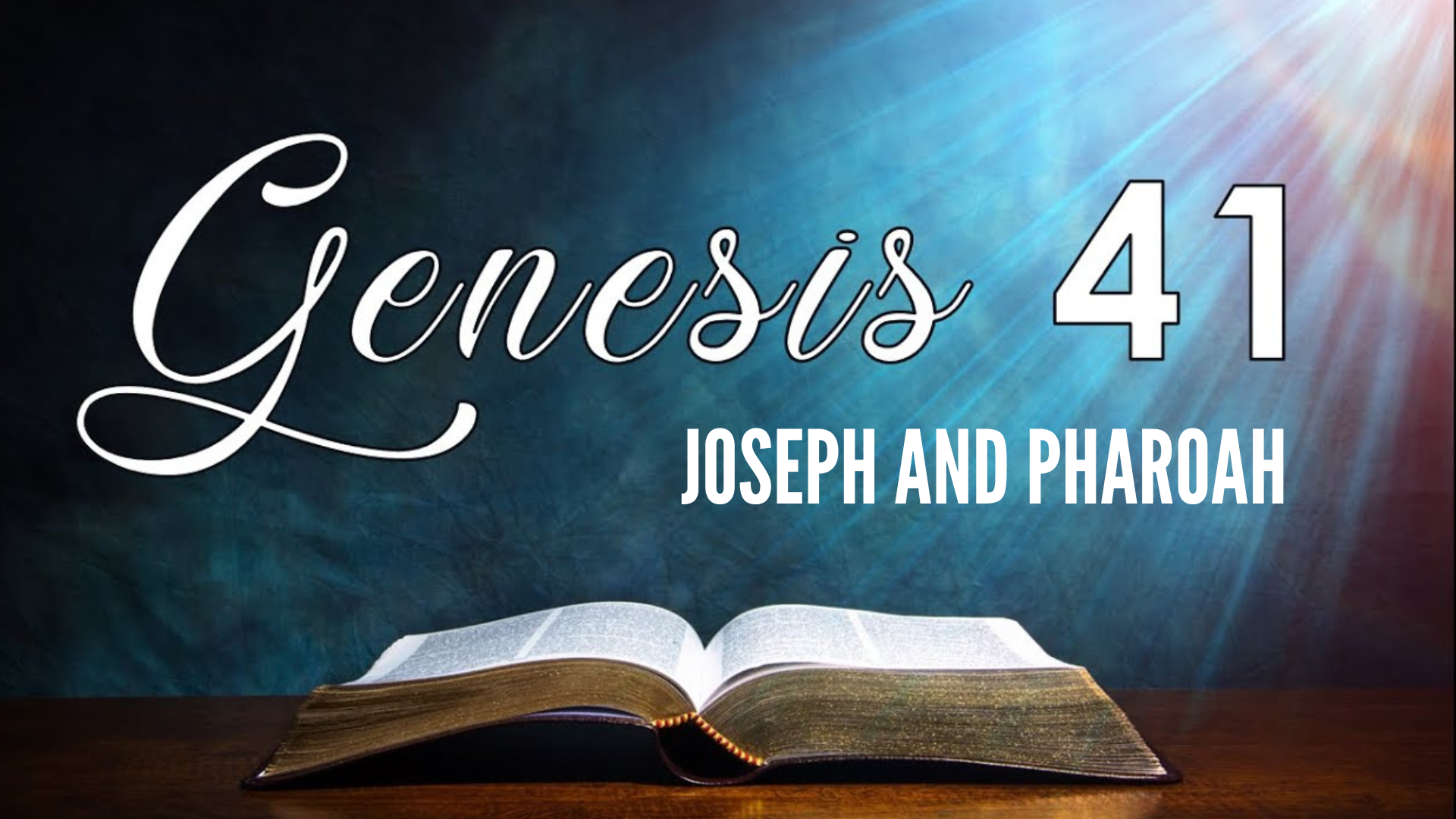JESUS’ BIRTH ANNOUNCED AND ANTICIPATED
1. THE ANNUNCIATION TO MARY (Luke 1:26-38)
A. The Angel’s Appearance (Luke 1:26-29)
B. The Angel’s Announcement (Luke 1:30-38)
2. MARY VISITS ELIZABETH (Luke 1:39-45)
A. The Arrival of Mary (Luke 1:39-41)
B. The Prophetic Testimony of Elizabeth (Luke 1:42-45)
3. THE MAGNIFICAT OF MARY (Luke 1:46-56)
A. Maidservant of the Almighty (Luke 1:46-50)
B. God’s Sovereign Purpose (Luke 1:51-56)
Central Truth: Christians rejoice in the birth of Jesus the Messiah, the Son of God.
Focus: Consider the magnitude of the announcement of Jesus’ birth and give praise to God.
Evangelism Emphasis: We are to proclaim the grace of the Messiah, who redeems the world.
Text: “Thou [Mary] shalt conceive in thy womb, and bring forth a son, and shalt call his name JESUS” (Luke 1:31).
INTRODUCTION
The previous lesson began with the incredible news that Elizabeth and Zechariah would become parents in their old age. While Elizabeth waited for the birth of John, the angel Gabriel appeared to Mary and announced she too would bear a son, and He would be the Messiah. Mary was a virgin, and her conception would be by the Holy Spirit.
Luke records more of the circumstances surrounding Christ’s birth than any of the other Gospel writers. Much of the detail he has recorded is so intimate that it could have been known only by Mary herself. The general belief is that Luke knew Mary and discussed these matters with her at length. Through the inspiration of the Holy Spirit, Luke included these matters in his Gospel.
Mary and Elizabeth’s lives were entwined in the holy purpose of God. Both were devout, and each was submitted to God’s purpose for her. The Scriptures reveal how they shared in their expectation.
1. THE ANNUNCIATION TO MARY
A. The Angel’s Appearance (Luke 1:26-29)
26 And in the sixth month the angel Gabriel was sent from God unto a city of Galilee, named Nazareth, 27 To a virgin espoused to a man whose name was Joseph, of the house of David; and the virgin’s name was Mary. 28 And the angel came in unto her, and said, Hail, thou that art highly favoured, the Lord is with thee: blessed art thou among women. 29 And when she saw him, she was troubled at his saying, and cast in her mind what manner of salutation this should be.
Six months before he appeared to Mary, the angel Gabriel announced that Elizabeth would bear a son whose name would be John (Luke 1:11-17, 36). Gabriel is one of only two angels who are mentioned by name in the Bible. The other is Michael. Gabriel and Michael are perhaps the highest of the angels in Heaven.
It is interesting that the angel visited a young maiden in the city of Nazareth—one of the most unpretentious cities of Palestine. Nazareth was considered a lowly city, and its citizens were usually scorned and despised to such extent that a proverb of that day was, “Can there any good thing come out of Nazareth?” (John 1:46). The city was built sometime between the Old and the New Testaments, for which reason there is no prior record or mention of it.
In Luke 1:27, the word espoused means “betrothed” or “engaged.” Hebrew couples usually had a formal ceremony of betrothal at least a year before their marriage was to take place. The betrothal was virtually as binding upon the couple as was actual marriage. When God was ready for His Son to be born into the world, He exercised great care in selecting those who would be His earthly parents. Joseph was a godly and pious man, a descendant of King David, and Mary was as pure and chaste as Joseph was prudent and wise. She also was a descendant of David.
That Mary was “highly favoured” (v. 28) means she was blessed with the favor, or attention, of God. From among the women of the earth, God had chosen her to be the mother of His Son.
Mary was greatly troubled by Gabriel’s greeting and could not comprehend what his appearance might mean. Zechariah also experienced considerable doubt when he received the announcement regarding John six months earlier, but Mary seems simply to have wondered, not to have doubted. Devout and spiritually sensitive as she was, she was hardly prepared for such an experience.
Abundantly Blessed
The Lord has abundantly blessed me all of my life. I’m not trying to pay Him back for all of His wonderful gifts; I just realize that He gave them to me to give away.—Lisa Whelchel
B. The Angel’s Announcement (Luke 1:30-38)
30 And the angel said unto her, Fear not, Mary: for thou hast found favour with God. 31 And, behold, thou shalt conceive in thy womb, and bring forth a son, and shalt call his name JESUS. 32 He shall be great, and shall be called the Son of the Highest: and the Lord God shall give unto him the throne of his father David: 33 And he shall reign over the house of Jacob for ever; and of his kingdom there shall be no end. 34 Then said Mary unto the angel, How shall this be, seeing I know not a man? 35 And the angel answered and said unto her, The Holy Ghost shall come upon thee, and the power of the Highest shall overshadow thee: therefore also that holy thing which shall be born of thee shall be called the Son of God.
38 And Mary said, Behold the handmaid of the Lord; be it unto me according to thy word. And the angel departed from her.
Verse 30 is a repetition and emphasis of Gabriel’s opening words in verse 28. Mary had not found favor with God by a light and flippant life, but by her deep piety, her sense of responsibility, her mature intelligence. She would give birth to the One who would be called by many names while He lived on earth, most of them being divine titles. The name Jesus, however, was a common name. It was a Greek form of the Hebrew name Joshua, meaning “deliverer.” This was an appropriate name for Him who would “save his people from their sins” (Matt. 1:21). That name was not chosen by Joseph or by Mary—it was chosen by the Father in heaven and revealed to them by the angel Gabriel.
Gabriel called Jesus the “Son of the Highest” (Luke 1:32), and in Mark 5:7 an unclean spirit called Him the “Son of the most high God.” Angels and demons alike view Him by this distinctive name; it seems the whole supernatural realm knew of His particular relationship with God the Father.
Gabriel’s announcement that Jesus would occupy the throne of David has yet to be fulfilled. While Jesus lived on earth, He never occupied the throne of David in any sense, and He suffered abuse such as no king ever suffered. In all Scriptural statements concerning the coming of Jesus, there is a mixture of reference to His first coming and His second coming. He has come as Savior, but is yet to come as King.
In Luke 1:34, Mary affirmed to Gabriel she was a virgin and it would be impossible for her to bear a son. Isaiah had prophesied “a virgin shall conceive, and bear a son, and shall call his name Immanuel” (7:14), but naturally these words were not in Mary’s mind at the time.
Gabriel’s response to Mary’s question was not so much an explanation as it was an affirmation. He affirmed to her that the Son she would bear would be divine, not of human origin. The Holy Spirit was the agency by which her conception would occur. By the Holy Spirit there would be a new generation, a new source of life, and a new power of life on the earth. Her conception would be mystical and spiritual, without human or material involvement or association.
As if to assure Mary of the miraculous nature of her conception, Gabriel said Elizabeth had conceived in a miraculous manner also (Luke 1:36). Although Elizabeth conceived naturally rather than supernaturally, the conception occurred in her old age when she was barren. It was the result of a human relationship that had required miraculous intervention. In the case of Mary, however, conception would be without human relationship and would constitute a miracle of the highest magnitude. Just as John the Baptist would be a forerunner of the Lord Jesus Christ, so John’s birth set the stage for the incomparable miracle of Jesus’ birth.
In conclusion, Gabriel told Mary, “For with God nothing shall be impossible” (v. 37). Jesus stated the same truth when He talked with His disciples (Matt. 19:26).
Mary did not question the matter further. She listened to God’s messenger angel with complete faith and obedience (Luke 1:38). The fact that she accepted the announcement of Gabriel does not mean she understood it. As she did on other occasions (2:19), she must have kept this revelation in her mind and pondered it in her heart.
- What does Mary’s response to Gabriel reveal about her?
2. MARY VISITS ELIZABETH
A. The Arrival of Mary (Luke 1:39-41)
39 And Mary arose in those days, and went into the hill country with haste, into a city of Juda; 40 And entered into the house of Zacharias, and saluted Elisabeth. 41 And it came to pass, that, when Elisabeth heard the salutation of Mary, the babe leaped in her womb; and Elisabeth was filled with the Holy Ghost.
Being a cousin of Elizabeth, it is very likely that Mary had heard of the older woman’s strange and unexpected pregnancy. Very possibly, Mary knew how the angel had appeared to Zechariah and of the miraculous loss of speech the old priest suffered. If these events were amazing to Mary, then the appearance and message of the angel to her must have been even more so.
The similar nature of the two visits of Gabriel, and the consequent two conceptions, must have motivated Mary to seek the company of Elizabeth. Mary’s journey covered a distance of about eighty miles, from Nazareth to some unidentified city in the vicinity of Jerusalem. Upon entering the house of Zechariah, Mary greeted her cousin Elizabeth. Among the Jews this was a blessing of peace, eloquently stated with compliments and bows.
As soon as she heard Mary’s greeting, Elizabeth received a wonderful spiritual experience. The baby in her womb leaped, which signifies a movement of great joy. Elizabeth was six months pregnant at the time of this visit, so she had already felt the baby’s movement in her womb, but never before as she felt it this time. The fact that the baby leaped when Mary spoke was a dramatic witness to the superiority of Jesus; which is, in fact, the point of this entire narrative.
Elizabeth was “filled with the Holy Spirit” (v. 41 NKJV). This does not mean she received a fullness of the Spirit such as the disciples received on the Day of Pentecost. It means, rather, that the spirit of prophecy came upon her, and she spoke as a Spirit-filled prophet of God.
The Person in the Womb
The word used of John the Baptist in Elizabeth’s womb is the Greek brephos (Luke 1:41, 44), the same word used of babies after their birth (2:12, 16). In 1 Samuel 15:3 the word for children in the New International Version is the same word for infant used by Job of his unborn condition as “an infant who never saw the light of day” (Job 3:16). The ones in the womb were individuals with personhood as much as those after birth.—Roy B. Zuck
B. The Prophetic Testimony of Elizabeth (Luke 1:42-45)
42 And she spake out with a loud voice, and said, Blessed art thou among women, and blessed is the fruit of thy womb. 43 And whence is this to me, that the mother of my Lord should come to me? 44 For, lo, as soon as the voice of thy salutation sounded in mine ears, the babe leaped in my womb for joy. 45 And blessed is she that believed: for there shall be a performance of those things which were told her from the Lord.
Elizabeth gave ecstatic praise to Mary and called her highly “blessed” of God (v. 42). Some use her words to substantiate their belief that Mary was exalted to near divinity. This was by no means the case. Elizabeth simply stated that the mother of Jesus had been more highly blessed than other women. She lived in a state of blessedness because of the favor of God upon her.
“Not only did she bless the mother of the coming Messiah, but the Spirit opened her eyes to see who that coming Messiah really was. Here the Spirit in a moment revealed to the happy wife of the priest Zechariah that the babe [who] was to be born of her young kinswoman was not only the promised Messiah, but the lawful Son of the Highest” (Pulpit Commentary).
Even before His birth, Elizabeth recognized Jesus as the Messiah. Later, the first person to recognize the man Jesus as the Messiah was her own son, John the Baptist (John 1:29).
Elizabeth related to Mary how the baby in her womb had leaped for joy (Luke 1:44). It is a spiritual marvel that one unborn child should bless in such a manner another unborn child, and that through the intermediary of one mother speaking and the other hearing. The lives of John and Jesus would forever be bound together as they worked together in a common revelation of God.
In verse 45, Elizabeth again blessed Mary for her pious service in the birth of the Messiah. The faithfulness and devotion of Mary was necessary for the Son of God to be born on the earth. Her submission to the will of God was a necessary element in the incarnation of the Christ.
- Compare Elizabeth’s statement “blessed is she that believed” (v. 45) with Jesus’ statement in John 20:29. How does this relate to us?
3. THE MAGNIFICAT OF MARY
A. Maidservant of the Almighty (Luke 1:46-50)
46 And Mary said, My soul doth magnify the Lord, 47 And my spirit hath rejoiced in God my Saviour. 48 For he hath regarded the low estate of his handmaiden: for, behold, from henceforth all generations shall call me blessed. 49 For he that is mighty hath done to me great things; and holy is his name. 50 And his mercy is on them that fear him from generation to generation.
After Elizabeth’s ecstatic prophecy, Mary herself spoke in beautiful praise to God. This is known in literature as “the Magnificat.” Mary’s devotion to God was primary, and it was because of this devotion that she was chosen to bear the infant Christ. Her reference to a Savior is noteworthy. She was to be mother to One who was to be her Savior (v. 47).
Motivating her ecstacy and adoration of God was Mary’s awareness of how greatly she had been blessed by Him. She recognized He had lifted her, an obscure Galilean maiden, into exalted and sublime service (v. 48). She speaks of God’s might and power and holiness (v. 49). The young woman’s comprehension of these divine attributes of God reveals her as a person of extraordinary spiritual insight.
Mary was able to envision something of the redemptive plan of God. She could see His mercy extended perpetually to those who fear Him (v. 50). Her words do not restrict the blessings of God to Israel, but she saw mercy extended to all who fear Him.
A Personal Matter
“The life of Christianity,” said Martin Luther, “consists of personal pronouns. It is one thing to say, ‘Christ is a Savior.’ It is quite another to say, ‘He is my Savior.’ The devil can say the first. Only the true Christian can say the second.”—D. L. Moody
B. God’s Sovereign Purpose (Luke 1:51-56)
51 He hath shewed strength with his arm; he hath scattered the proud in the imagination of their hearts. 52 He hath put down the mighty from their seats, and exalted them of low degree. 53 He hath filled the hungry with good things; and the rich he hath sent empty away.
In her hymn of praise, Mary proceeded from personal adoration to an expression of God’s sovereign power. As is frequently done in Scripture, the future is spoken of as if it had already happened. Mary’s words clearly have in view the mighty results of the coming of the Messiah; the strong arm she speaks of is the strength of Christ when He shall come (v. 51). The world had become upside down, but God would set it straight.
Three terms are used for those who put themselves in opposition to God: the proud, the mighty, the rich (vv. 51-53). These have prospered and gained power through the exploitation of the poor and needy. God’s sympathies lie with the oppressed, however, rather than the oppressors. His mercy will be given to those who are lowly and hungry.
The sentiments expressed by Mary here would be repeated by Jesus in His Sermon on the Mount. Those who are rich in worldly goods only are very poor indeed. Those who have material needs but are rich in spiritual things are exalted and full. The Messiah would put these matters in perspective—and it is our faith in Him that keeps them in perspective today.
Mary’s song of praise ends with a review of God’s blessings on His chosen people (vv. 54-55). Still speaking of the future as if it were the past, we see the Messiah strengthening Israel in fulfillment of the promise given to Abraham.
We must always bear in mind that Jesus came first to the people of Israel. Only when Israel refused to accept the Messiah did His arm of strength turn to the Gentiles. Since the time of Abraham, the Jews had waited for their Redeemer; and it was to them that He would come. He was the fulfillment of every Jewish dream and prophecy.
Verse 56 tells us Mary remained with Elizabeth about three months, or until about the time John the Baptist was born. Although the Scriptures are silent as to the activities of these three months, we can be sure they were days of preparation for the sons who were to be born.
Mary returned to Nazareth, for much had to be done there. Matthew 1:18-25 tells us she was espoused to Joseph and that God reconciled him to the supernatural birth. God had chosen with care the one who would become the mother of His Son. Mary’s relationship to Elizabeth and Zechariah, the understanding of Joseph, and her personal dedication and commitment to the will of God made her the ideal choice to bless the world.
- What happens to someone who enthrones himself (v. 52)?
- How are “the rich . . . empty” (v. 53)?
EXPERIENCING DIVINE FAVOR
The Scripture passage we have explored has a three-part movement. (1) Mary received stunning news from God. (2) Mary traveled to her cousin’s home, where Elizabeth confirmed the good news even before Mary could announce it. (3) Mary worshiped the Lord from her inmost being.
Today, if we will serve God in humble, loving obedience, we too can walk in His favor. When He blesses us in whatever way He chooses, we must then testify to others and praise God with all our being.
Daily Devotions
M. Messiah Promised Through the Woman (Genesis 3:13-15)
T. Descendant of King David’s House (2 Samuel 7:8-16)
W. Birth of Immanuel Foretold (Isaiah 7:10-14)
T. Immanuel Shall Save His People (Matthew 1:18-23)
F. Take the Things of God to Heart (Luke 2:14-20)
S. The Fullness of Time (Galatians 4:1-4)
Adopted from the Evangelical Sunday School Lesson Commentary 2021-2022.









